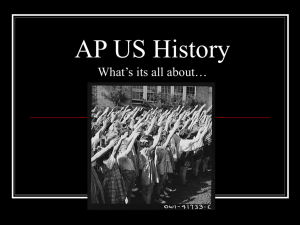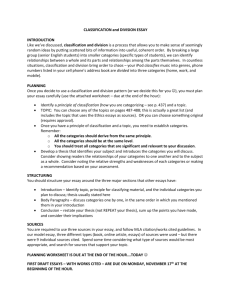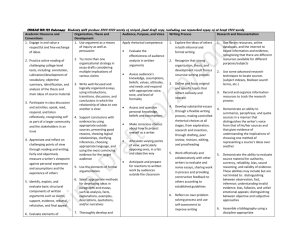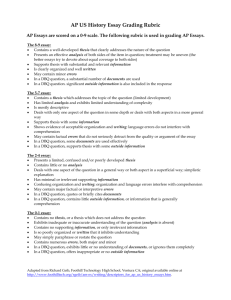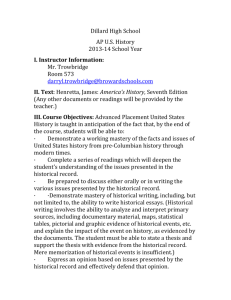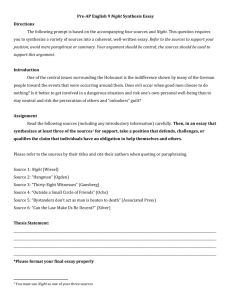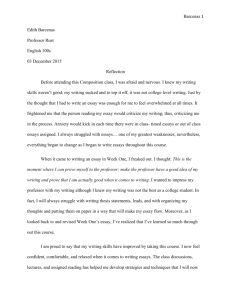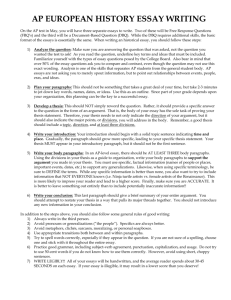Test Prep
advertisement
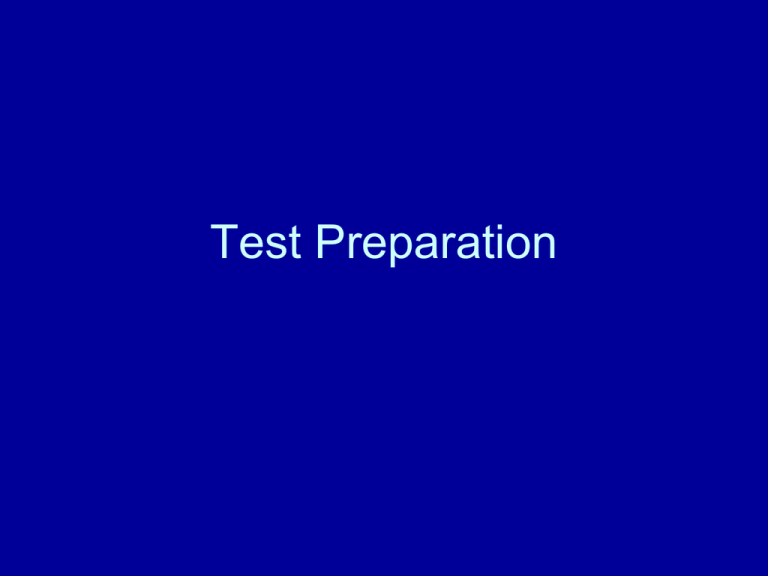
Test Preparation Step 1 Pre-game 1. • 2. • • 3. • • 4. • • • Get a good nights sleep on the night before the exam Do not stay up all night doing last minute cramming Eat before the test. The test starts at noon. Eat breakfast and lunch before the exam Do not over stress Prepare as much as you can Do not worry about what is beyond your control Be prepared Two #2 pencils Blue or black pen Snack for the break Multiple Choice Pacing • Work at a consistent pace • Do not get stuck on one question • If you do not know an answer, skip it and go back • Remember- All questions are worth the same toward the final score Multiple Choice • 55 minutes, 80 questions Era • 1450-1815 = 50% • 1815-present = 50% Themes • Political and diplomatic = 30-35% • Cultural and Intellectual = 30-35% • Social and Economic = 30-35% Multiple Choice Types of Questions • Standard Multiple Choice • EXCEPT/NOT • Illustration – Map, Political Cartoon, Painting or Poster • Interpret a graph or chart Multiple Choice • No specific military history questions - Questions about wars will involve political or diplomatic concerns, introduction of new technologies - Not strategy Multiple Choice • No trivial pursuit questions • Questions tend to focus on the big picture No Sure? If you are unsure of answer…. • Use Process of Elimination • Improve your odds of guessing correctly Remember • Read question carefully • Read all of the answers carefully Essays • • • • • Read the question carefully Answer the question! Address all aspects of the question No narrative! Show that you understand the big picture Essays • Remember that your time is limited - The test graders understand that • Make your essay easy to read and understand, the grader will appreciate it. Remember - Graders read 100 essays per day Essays Read question carefully • Underline key words, circle dates • Brainstorm ideas • Decide what point you will argue, this is your thesis • Tailor your argument to the information you have/remember Essays Outline 1. Paragraph with thesis statement 2. Three paragraphs that support your argument, packed up by evidence 3. Conclusion. Reiterate the thesis Essays • • • • • • • • • • Address the question directly Keep sentences as simple as possible Write clearly and neatly Define your terms Use transition words to show where you are going (furthermore, also, in addition) or transition (however, yet) Structural Indicators ex. 1st, 2nd, last or “on one hand” then “on the other hand” Stick to your outline Prove one big picture idea per paragraph Provide evidence Place essay in historical context DBQ What must I discuss in order to answer the question successfully? • Address all parts of the question • Organize Essay • Gather Outside Information DBQ Read The Documents • Pay attention to the order in which the documents appear • Watch for inconsistencies, recognize contradictions • Identify Source - Political ideology, class, race, gender, religion - Could explain difference of opinion (POV, bias) • Look for evidence that can refute your argument - Shows you understand the complexity of issue DBQ Thesis • Needs to provide an answer, not simply restate question • Make sure it addresses all aspects of the question • Should mention the groups you are going to use to organize your essay REMEMBER THE RUBRIC

